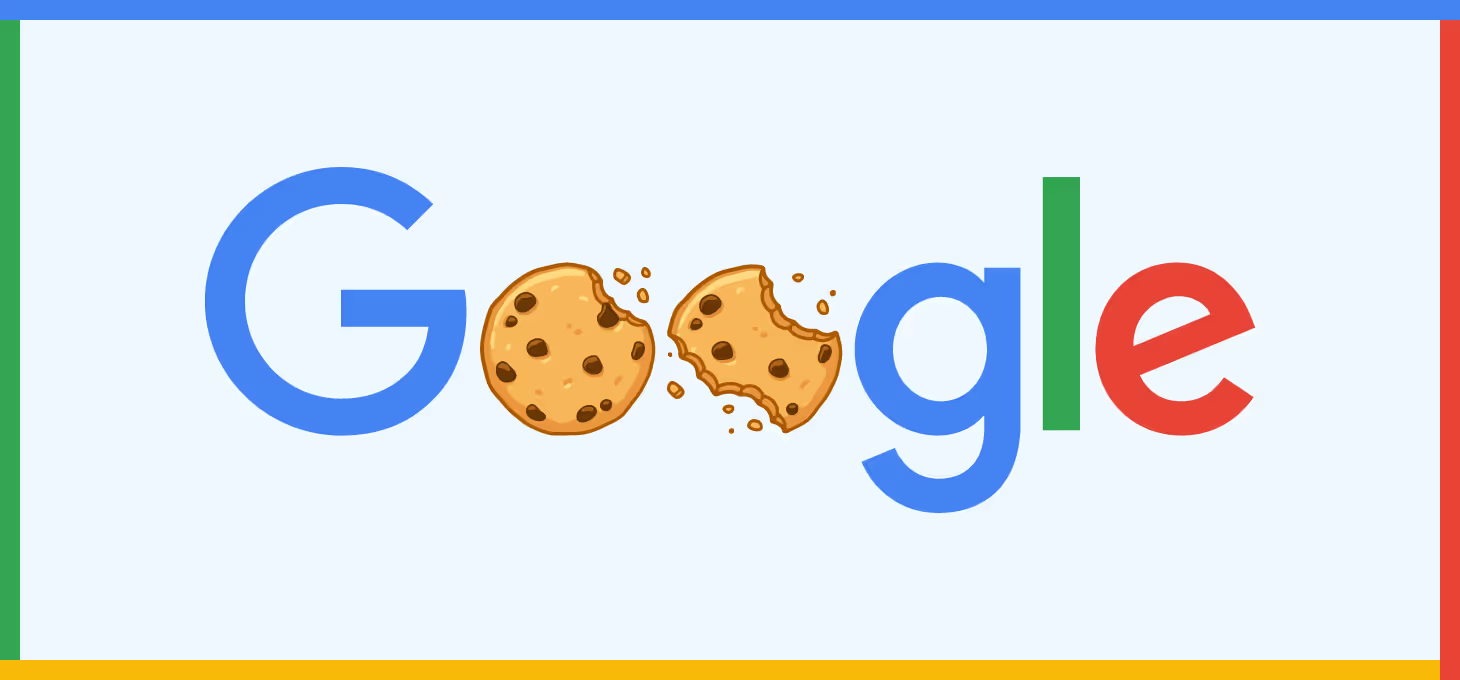How Google removing 3rd party cookies affects your business
We’re sure that you will have all heard by now that Google announced that they’ll abandon cookies in 2022. Whilst this might seem all doom and gloom, we wanted to put your mind at ease and outline how this will affect advertising.

Google's 2021 announcement about removing 3rd party cookies from its browser has many people worried about the future of their business, especially those who rely on advertising to generate revenue.
Why? According to David Temkin, Director of Product Management, Ads Privacy and Trust, third-party cookies have significantly contributed to privacy concerns, resulting in a lack of trust on the consumer's side. As they collect individual user data, business owners are worried that the removal of third-party cookies will stop them from delivering relevant ads across the web.
The prospect of losing out on extra traffic and sales due to Google's latest changes in privacy policy may sound scary. But fear not! In this post, we'll break down what you need to know, why it matters, and what you can do about it.
Google's third-party cookie removal
Google has announced that it’s removing third-party cookies from its Chrome browser. The reason behind this decision draws back to their Privacy Sandbox strategy, which is an attempt to reduce the risk of fingerprinting, provide more human-understandable transparency, and continue to avoid sensitive categories, all while maintaining content freely accessible on the web.
Although this change was originally scheduled for 2022, it has now been decided that it will come into effect starting in mid-2023 and ending later that year. Vinay Goel, Product Director for Privacy Sandbox and Chrome, explained that the delay doesn't mean the change won't happen but that the company will move at a responsible pace over a three-month period. Highlighting the importance of avoiding putting publishing businesses at risk, Goel stated that Google would sustain public discussions to find the right solutions, keep up engagement with regulators and make sure the advertising industry is able to migrate their services.

How will advertisers and businesses be affected?
This announcement has led to a lot of confusion about what third-party cookie removal means for advertisers and businesses. Really, it's too early to say with certainty, as the change hasn't occurred. However, unless alternatives are provided, it will be more challenging to understand consumer behaviour and target ads based on specific interests in a product or service.
Is Google providing any alternatives?
Google's stance on third-party cookies has been clear and defined, and that is that they will not build any sort of alternate identifier to track users individually as they search on the web, nor will they use them in their products.
As Google's focus remains on improving user privacy and experience, they intend to invest in sustainable, long-term solutions that will meet current and future consumer expectations as well as regulatory restrictions across the globe.
However, conscious of the effect this removal can have on businesses, especially those who rely heavily on advertising, Google has decided to develop products powered by privacy-preserving APIs. These will allow advertisers, publishers, and businesses alike to see results from their marketing efforts without individual tracking. What they're talking about is the Federated Learning of Cohorts (FLoC), or what is more commonly known as interest-based advertising.
This utilises recent browsing history to generate a “cohort identity” for users. That means that users can no longer be identified as individuals but always as a member of a group that has similar interests.
Adverts can then be targeted to a cohort rather than a specific individual user. Conceptually, this system isn’t new – it is a form of profiling, which is an advertising model Facebook has been using for some time – you will have heard us talk about this regularly at 303, otherwise known as “Lookalike audience” targeting.
What can business owners do to stay in front of their customers?
Business owners should start by reviewing their current marketing strategies and evaluating how they use third-party cookies. If your website relies heavily on third-party cookies and you're worried about losing access to them, there are ways you can adjust your strategy to ensure that your website stays relevant and engaging with your customers.
1. Focus on first-party data
First-party data is information collected directly from visitors on your website or app — like email addresses and preferences. This type of data doesn't rely on third parties, so it won't be affected by Google's new policy change. By focusing on first-party data, you'll be able to continue collecting information about your customers without needing help from other sources. Surveys, polls, user registrations, and feedback are all ways to collect valuable data about your consumers.
2. Promote through social media platforms
Social media is another great place to reach customers because they're already there — especially if you're targeting an audience with specific interests or demographics in mind. It's also important to have a content plan in place. Creating useful content that people want to watch or read is an effective way to engage with customers and build trust. This will also help increase your organic traffic with people that are interested in what you have to offer.
3. Send newsletters
Newsletters are great for keeping your customers informed about what’s happening at your company and what they can expect in the future. Include links to new products or services you have available on your website, along with any relevant information that could be useful to them.For example, if you run an e-commerce store selling pet supplies, include information about upcoming dog shows, local adoption events and other pet-related events happening in their area. This will help make sure that customers don’t forget about your business even when they aren’t on your site browsing products.
4. Use contextual advertising
Contextual advertising is another way to stay in front of potential customers without third-party cookies. This refers to the practice of placing PPC advertisements on websites that rank for similar keywords as your business. As the ads are shown on pages that share similar interests, this strategy can help you expand your reach and increase the likelihood of converting a visitor into a customer.
5. Stay on top of the news
As we've all seen, there is a track record of changes as new discussions arise or feedback is received from updates. The tech space is constantly evolving, and it's important to consume relevant news and information in order to apply the most important marketing strategies to your business.
Frequently asked questions (FAQs)
Our goal is to make sure you have all the information and support you need so that you can stay resilient to change and adapt to it with the most convenient strategy for your business. That is why we have put together some of the most frequently asked questions about Google's third-party cookie removal.If you don’t find the answer you are looking for, please reach out to us, and we will be happy to chat (or vent) more about this.
What are website cookies?
Cookies are small files that are placed on your computer, tablet or mobile device when you visit a website. Cookies allow the website to remember your actions and preferences (such as login, language, font size and other display preferences) over a period of time, so you don't have to keep re-entering them whenever you come back to the site or browse from one page to another.
Cookies also enable advertisers and businesses to target their advertising more effectively and help them understand how people use their services. As a business owner, you may collect information about individual users, such as the pages they viewed, the links they clicked, what ads they saw and followed, and how long they spent on each page.
What are web cookies used for?
Cookies can be used to provide customised content and information, generate statistics, and improve the user experience. The information in the cookie generally consists of a string of characters that is sent to your browser and stored on your computer's hard drive.
However, cookie use varies from site to site. Some sites use them only to track basic website usages, such as pages visited or time spent on a particular page, while others use them for more complex tasks, such as displaying relevant ads based on your interests or previous purchases. Some cookies remain active only while you're visiting a particular site; others have no expiration date — they remain on your hard drive until you delete them manually.
What is cookie consent?
Cookie consent is a feature in Chrome that allows you to control how websites use cookies. Google has decided to use this as an opportunity to help protect your online privacy and security by giving you total control over your cookie preferences.
Conclusion
The bottom line is that Google's decision to remove third-party cookies from Chrome will have a significant impact on the advertising industry. Business owners and advertisers will need to take this into consideration when designing their campaigns, so they adapt their strategies accordingly.
Should you worry? No, we don’t think so.
The new tracking technology may result in a slight drop in conversions 5% at most, according to Google who said: “Our tests show that advertisers can expect to see at least 95% of the conversions per dollar spent when compared to cookie-based advertising.”
But to be honest… only time will tell!In the long term, with the power of Artificial Intelligence and all the new technologies coming along, more advanced ways of identifying potential customers may arise. And on the positive side about cohorts, being able to group people, rather than target them as an individual means more people to convert!

.avif)



